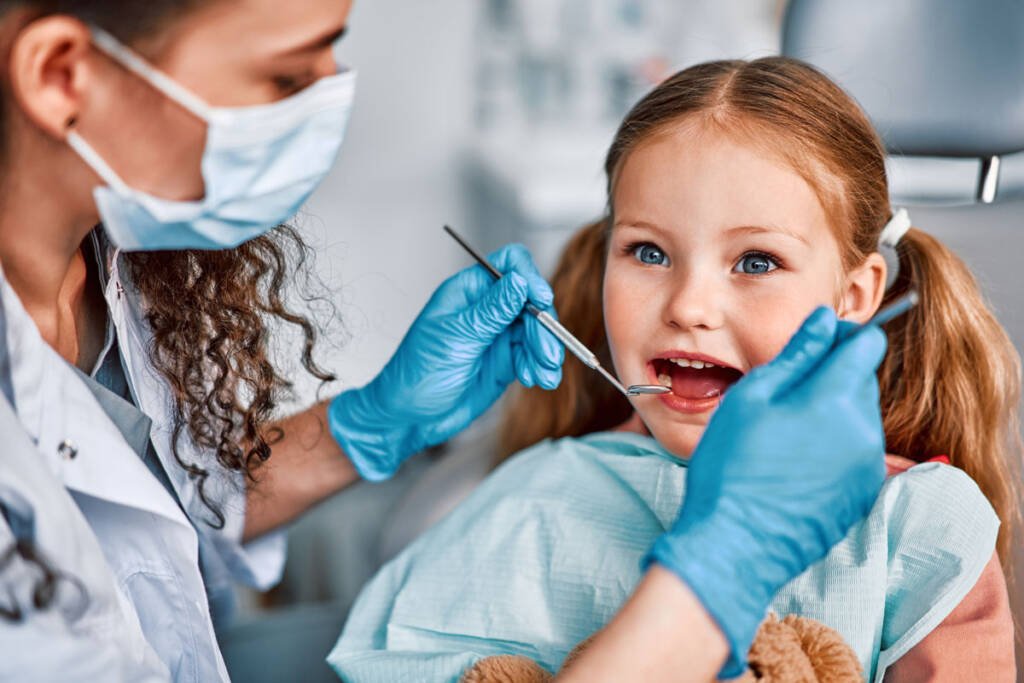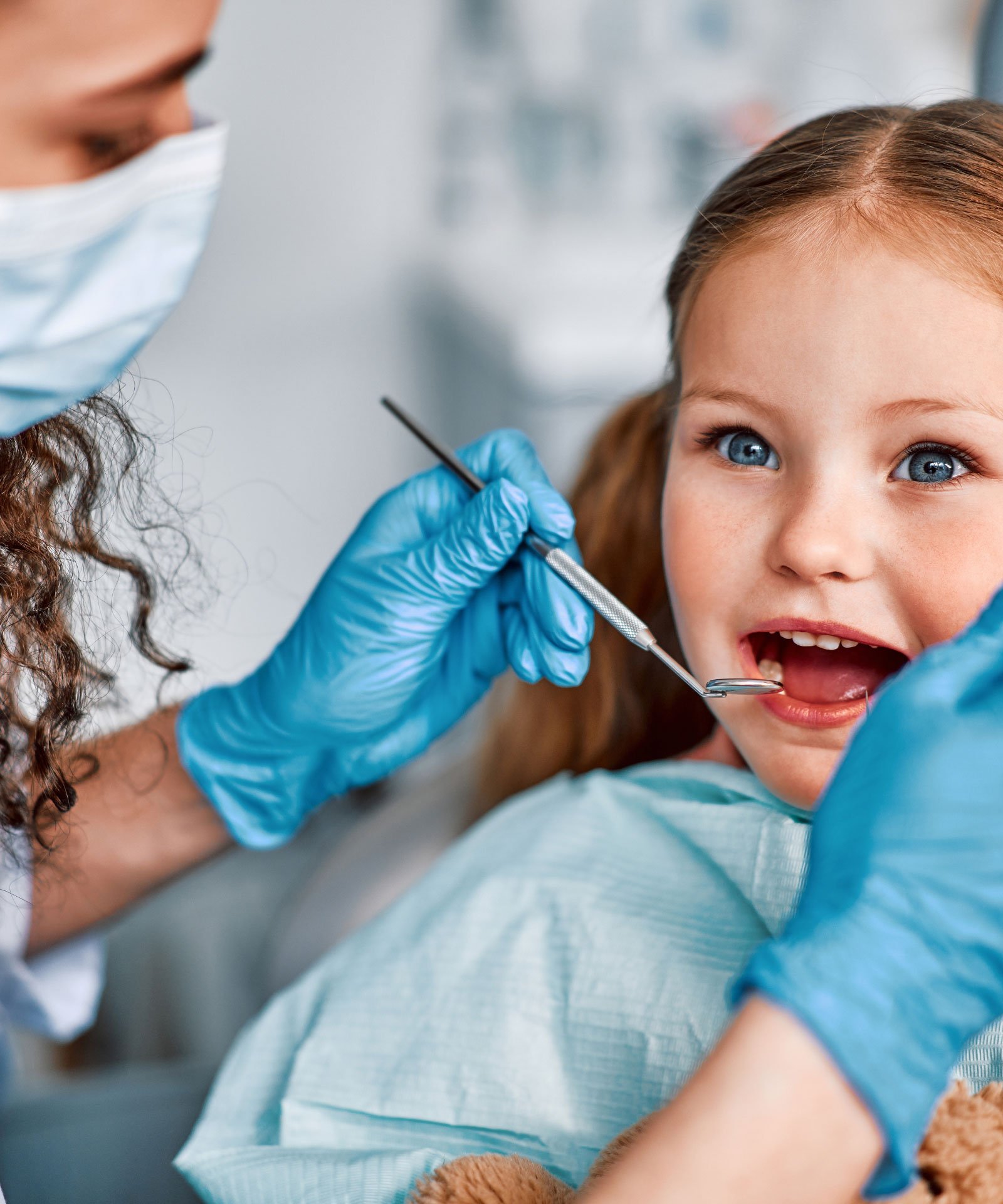PAEDIATRIC DENTISTRY

Pedodontics, or paediatric dentistry, is a speciality that deals with the protection and treatment of both primary and permanent teeth of children from birth to adolescence. The first appointment with the dentist can take place when the first milk tooth erupts. In this way, the dentist can inform the family about eating habits, oral care and caries-preventive practices. Bacteria that cause tooth decay can be transmitted from mother to child. For this reason, the mother should not take the child's bottle or spoon to her own mouth. Milk teeth usually begin to erupt between 6-12 months. When the child is 3 years old, it is expected to have a total of 20 milk teeth. Milk teeth serve not only for aesthetics, chewing and speech, but also as a placeholder for the permanent teeth that will erupt in the future. For this reason, oral care should be carried out carefully from the moment the first teeth appear in the mouth and regular medical check-ups should be made. Even before the teeth erupt in the mouth, the palate can be wiped with a damp cloth after the baby is fed. After the teeth erupt in the mouth, cleaning should be started with a small soft brush and water. After the age of 3, a small piece of fluoridated paste can be added to the brush. Since hand dexterity is not fully developed in children, teeth should be brushed by parents until a certain age.
What is bottle rot?
Early and common dental caries in children is called bottle caries. Mostly the upper front teeth are affected. Among the causes are breastfeeding of the baby by the mother during the night and putting the baby to sleep with bottles filled with sugary liquids such as milk with honey. In order to prevent bottle caries, the bottle should not be used during sleep or water should be given immediately after the bottle and teeth and gums should be brushed.
Treatments
In decayed deciduous or permanent teeth, filling is performed with materials such as composite, compomer, glass ionomer after the decay is cleaned. In deeper decays, more advanced treatments such as milk tooth canal treatments, amputation, and removal of the pulp (nerves) of the tooth can be performed. If the tooth is in a worse condition, early deciduous tooth extraction may be necessary. In these cases, placeholder application is required to protect the permanent teeth. In extremely anxious, non-communicative children, children with special needs who cannot be treated while awake, treatments can be performed safely under general anaesthesia or sedation.
Protective applications
Fluorine application: Enamel-strengthening fluorine preparations are applied topically to the tooth surface. Fissure sealant: Bacteria and nutrients are prevented from reaching the cracks and pits on the chewing surface of the teeth by covering them with fissure sealant.


